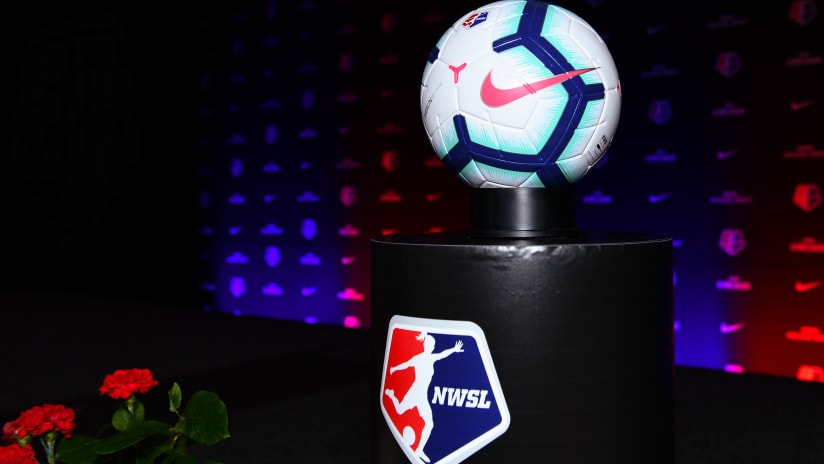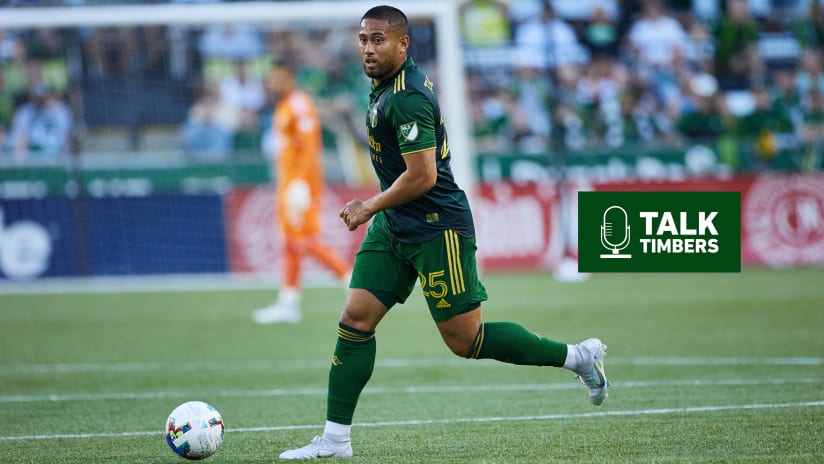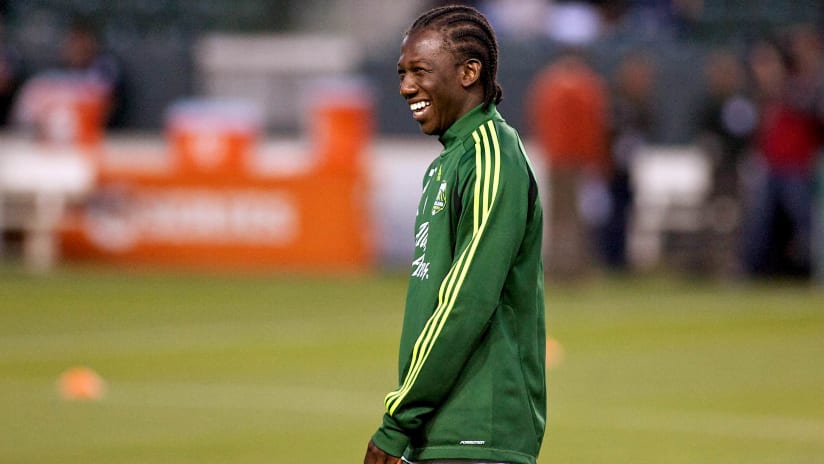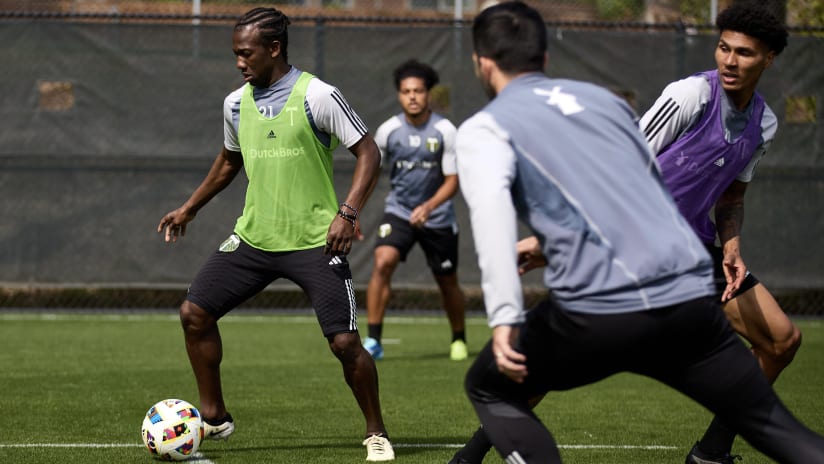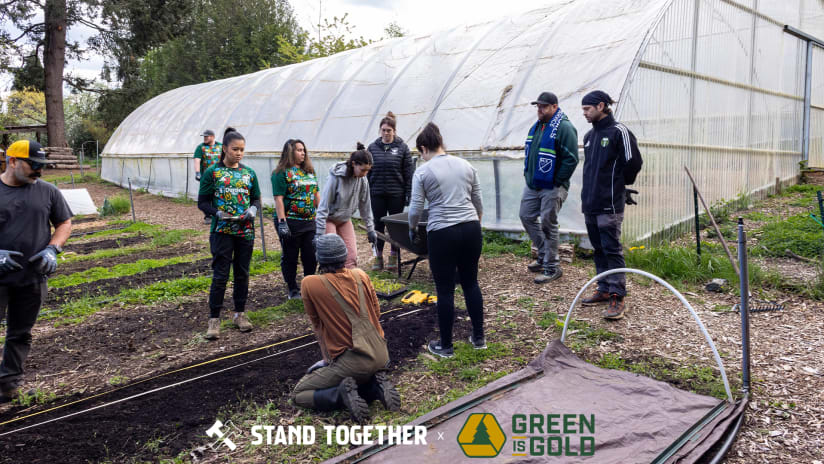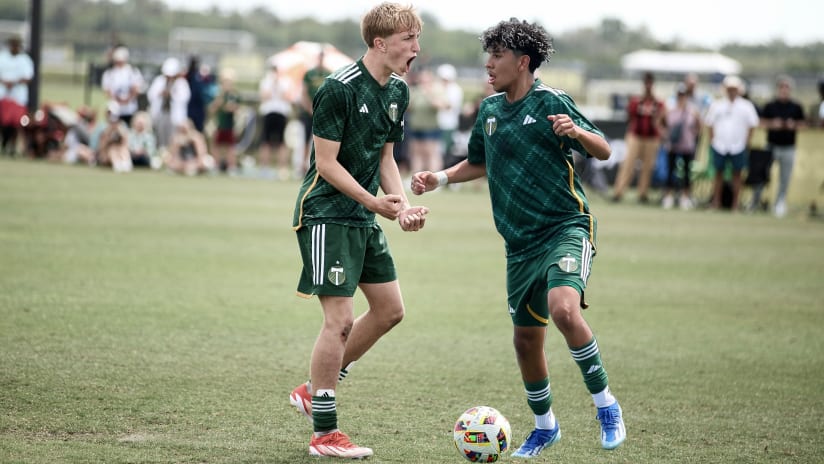Early Monday morning, the rumors ignited NWSL twitter. Not only was the first-overall pick in next week’s NWSL College Draft in play, they said, but Portland Thorns FC were being linked to the deal. And multiple national-team players were involved.
On most days of an offseason, posts like those are symptomatic of a long, newsless winter, and the desire to see tea leaves as more than flotsam. On Monday, though, they were symptomatic of the truth.
That truth may land players like Stanford’s Sophia Smith or UCLA’s Ashley Sanchez in Portland, or perhaps even Sanchez’s Bruin teammate, Jessie Fleming, if speculation plays out. For now, all we know is the Thorns have come into possession of next Thursday’s top pick in the 2020 NWSL College Draft, putting them in position to not only acquire a player who can have an immediate impact at the professional level but also one with an international future, whose age will cast her in the league’s youngest cohort.
Beyond that, there isn’t much to know about the Thorns’ returns. For the next eight days, they have a draft slot, not a name. A draft slot doesn’t have skills. It doesn’t have a position. It doesn’t have to fit within a team or a match a personality to a culture. It only has potential, and given the players who might be available for the draft (with none of the ones listed above on the league’s available players list, yet), Thursday’s talent could carry major potential. Getting those players often comes at a severe cost.
That’s one way to describe the loss of Emily Sonnett. Euphemistically, you could also call the loss tough, or perhaps closer to the truth, you can acknowledge this is an identity-changing move. Whether that applies to the team on the field will be determined in two months, when the Thorns reassemble in Portland for their preseason. Undoubtedly, though, Sonnett’s absence changes the dynamic of the dressing room. In a team that had its strong veteran and young components – its long-established stars balancing the players who represented both the present and future – Sonnett had been a cornerstone part. Her four years in Portland put her at the center of the team’s success during that period.
Center, in this sense, is convenient, given her position. From the moment she was drafted first overall in 2016 out of the University of Virginia, Portland’s defense was built around the future World-Cup winner. Standouts like Emily Menges, Meghan Klingenberg and Katherine Reynolds have helped guide the center back’s maturation, but even in her departure, the hallmarks of that maturity are undisputed. Sonnett won an NWSL title in Portland (2017), along with an NWSL Shield as part of the league’s 2016 regular-season champions. Twice during her tenure at Providence Park, the Thorns produced the league’s best defensive record over the course of a season, and while her back-line partners and goalkeepers Adrianna Franch and Michelle Betos should not be short-changed amid that accolade, Sonnett shouldn’t either.
She has the athletic profile to make her a coach’s dream defensive talent, undoubtedly why the Orlando Pride sought her in this trade. In some respects, her value on the ball rivals any defender in the NWSL. Her ability to contribute both in front of the defensive line and behind it also grade out at elite levels, while her attacking instincts and value on set pieces allow her to be a plus contributor at all levels of the field. There is a reason why she was with the United States in France last summer, as the team raised their second-consecutive World Cup, and there’s a reason she projects as a national-team regular in the future. Sonnett is a major talent.
That’s not to say she’s a perfect player. The Thorns’ defense has failed to strike the right balance between product and potential over the last two seasons, and just as Sonnett and her backline teammates deserve shared credit for their 2016 and 2017 successes, so too do they deserve shared blame. Things needs to be reconsidered not only on that end of the field but higher up, where a silenced Thorns attack left Portland without a way to match their fiercest opposition at the end of the 2019 season. Among the brightest talents available to improve at that end of the field, many are available in this winter’s draft – a place where you can claim exclusive rights over collegiate players without having to battle the world on the international market. The price for that kind of exclusivity, though? A player like Sonnett, and more.
Before getting to that “more,” the off-field realities deserve more time, particularly because, as seasons pass in sports, we tend to forget things that can’t be captured by numbers, awards, and honors. Sonnett’s arrival in 2016 coincided with the first major makeover in Thorns history, one that also brought players like Lindsey Horan, Klingenberg, Reynolds, Franch, Dagny Brynjarsdottir, Nadia Nadim, Hayley Raso and, eventually, Amandine Henry, in addition to head coach Mark Parsons. With that new team and new management came a new culture, at the heart of which Sonnett has sat since its beginning. Perhaps her presence wasn’t the most influential at first, when she arrived with no professional experience to greet names like Christine Sinclair and Tobin Heath, but over her time in Portland, that influence has grown. Where she arrived as a 22-year-old having to prove herself, she leaves the Rose City having provided that proof, both in results and, in the dressing room, as a teammate.
Decisions like this are never easy. Just consider, for a moment, the perspective of the Thorns’ decision makers as they’ve settled on this course. A player like Sonnett is not just an asset. She is somebody who has been a colleague since she her first professional moment; a fellow celebrant, when the team reached its highest points possible; a name at the center of plans, in the middle of white-board drawn formations, since the instant the rights to her pick were acquired before the 2016 draft; a person in who coaches and teammates and administrators were, and likely undoubtedly are, personally invested. These decisions meet the public via tersely worded releases, with carefully manicured quotes, but they are always tough.
Likewise, there was the decision around Caitlin Foord, whose tenure in Portland lasted two seasons fewer than Sonnett’s. Foord’s impact off the field, though, will also be missed. Throughout her year-and-a-half at Providence Park – with the first part of her Thorns tenure spent at home, in Australia, recovering from a major foot injury – the Matildas standout became an integral part of the team’s culture in addition to, upon her 2018 arrival, helping to position the team for its future. Though the now-25-year-old attacker never put up the numbers she or her former team had hoped, her loss will still be felt.
In year one, the foot injury suffered toward the end of her Australian W-League season meant she never had a chance to fully integrate into the team. Year two got off to a strong start, with Foord producing as the team’s starting striker before her departure for the World Cup, but Australia’s disappointment in France hit her hard. As one of the longest-tenured Maltidas, she bore the brunt of their early elimination like few others. After returning to the NWSL, her 2019 never got back on course, leaving her to depart Portland with, in 26 appearances, three goals.
If Foord ends up finding her goal-scoring form in Orlando, few will be surprised. Likewise, if Sonnett makes an all-league team in the Pride’s central defense, it will be proof of her value, not a shock turn. The risks those things happen are why a team like Orlando would make this deal, and why it’s difficult for Portland.
But from the Thorns’ perspective, the hope in all this is not only that Portland can address their most pressing needs; or that this, four years after Sonnett’s arrival, sparks a second significant, successful makeover. It’s that the person who’s acquired next Thursday in Baltimore, Maryland, when the league drafts its next batch of talent, can be somebody who, looking three, four years down the road, is even more than one of the better players in the league at her position. With talents like Fleming, talents like Smith, there’s the potential to have a player that’s among the best in the league, period. And while that potential is often never realized, there’s a high cost for a team that wants that shot.
Is the cost Portland paid fair? Good value? Worth it, in terms of what it means to lose people like Sonnett and Foord? Just minutes after the trade’s announced, there’s no way to judge. But this is the cost of taking that chance. And come next Thursday, Portland gets to play out the second half of their gamble.

